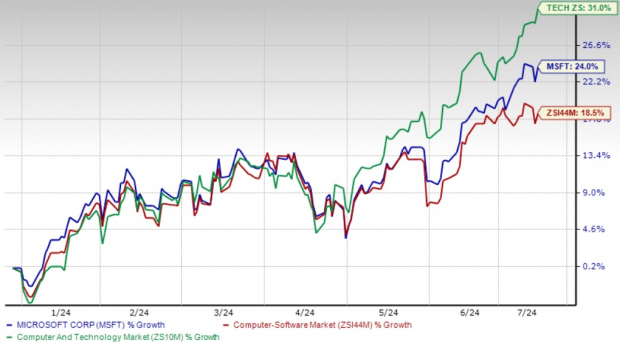Microsoft finds itself under scrutiny after its recent $1.5 billion investment in UAE-based artificial intelligence (AI) firm, G42. This monumental deal has piqued the interest of Republican lawmakers, who are advocating for a comprehensive intelligence evaluation of the transaction. Representatives Michael McCaul and John Moolenaar, spearheading key House committees, have urged the Biden administration to provide insights into the possible exchange of sensitive technology and G42’s historical links to China. The lawmakers’ primary concern lies in the second phase of the deal, which could encompass the transfer of export-restricted semiconductor chips and advanced AI model weights, vital components that bolster an AI model’s ability to simulate human cognition.
The legislators’ alarm underscores mounting anxieties surrounding the absence of regulations governing the export of cutting-edge AI technologies. There is a fear that companies like G42 might share this coveted technology with U.S. adversaries, especially China. In a letter addressed to White House National Security Adviser Jake Sullivan, the Republican representatives conveyed apprehension about the swift progression of a collaboration entailing “the unparalleled transfer of highly confidential, U.S.-origin technology,” without adequate congressional consultation or well-defined regulations in place. The lawmakers explicitly requested an evaluation of G42’s connections to China’s Communist Party, military, and government before permitting the advancement of the Microsoft deal.
The lawmakers’ unease was further compounded by the recent visit of UAE President Sheikh Mohamed bin Zayed Al Nahyan to Beijing for discussions on AI cooperation. This diplomatic engagement has heightened concerns about potential technology transfer to China, as the strained tech relations between the U.S. and China continue to escalate. Microsoft has responded by assuring close collaboration with the U.S. government, emphasizing that “U.S. national security will remain a primary focus.” The White House National Security Council has echoed this commitment, indicating its dedication to ongoing discussions with lawmakers on the risks tied to digital infrastructure.
The situation’s complexity deepens with G42’s prior involvement in “digital surveillance” endeavors and alleged affiliations with Emirati cybersecurity firm DarkMatter, posing additional areas of concern. These worries shed light on the intricate network of global relationships and potential security consequences surrounding the deal. Notably, G42 disclosed in February that it had divested its investments in China and accepted restrictions imposed by the United States to collaborate with U.S. entities. This move, coupled with reports suggesting that the Microsoft-G42 partnership was predominantly orchestrated by the Biden administration to curb China’s influence, paints a multifaceted picture of conflicting interests and strategic maneuvers in the global AI landscape.
Exploring Microsoft’s Regulatory Challenges Amid Cloud Antitrust Concerns
In the midst of unfolding events, Microsoft faces a delicate balancing act between fostering technological advancement, nurturing international alliances, and safeguarding national security. The outcome of the congressional inquiry and any consequent actions could have extensive implications for future global AI collaborations and the regulatory framework surrounding AI technology exports.
Microsoft’s regulatory hurdles extend beyond the G42 investment saga. The company’s $13 billion investment in OpenAI Inc. is currently under informal investigation by EU regulators due to apprehensions regarding the AI firm’s exclusive use of MSFT’s cloud technology. Proactively, Microsoft has relinquished its board observer seat at OpenAI to allay antitrust concerns in the U.S. and U.K. Additional legal challenges include a $14.4 million settlement with California’s Civil Rights Department concerning alleged discrimination against employees on parental and disability leave.
Moreover, the EU has accused Microsoft of market power abuse by bundling the Teams video-conferencing app with its business software. Despite these hurdles, this Zacks Rank #3 (Hold) company successfully resolved a potential EU antitrust probe into its cloud business practices by reaching a consensus with the Cloud Infrastructure Services Providers in Europe (CISPE), a trade association backed by Amazon. This settlement follows Microsoft’s concessions to address concerns raised by cloud service providers, effectively resolving a prolonged dispute.
While the CISPE agreement signifies progress, it has faced criticism from major players like Amazon Web Services, Google Cloud Platform, and Alibaba cloud service for omitting them from the settlement. These companies argue that the agreement falls short in addressing the needs of numerous Microsoft customers who still encounter limitations in selecting their preferred cloud provider. As the tech sector evolves, Microsoft’s adept navigation of these regulatory challenges will be pivotal in shaping its trajectory and the competitive dynamics of the global tech arena.

